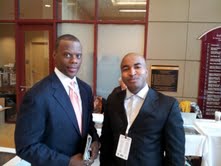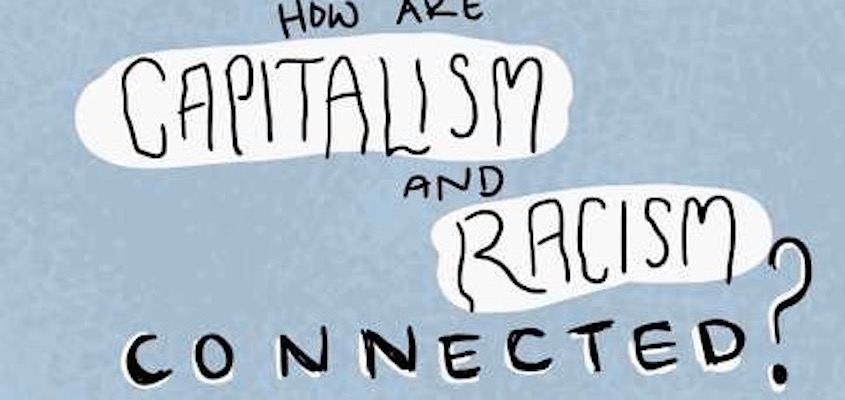(ThyBlackMan.com)
In the afterglow of the lively, spirited debate last week in South Carolina, I woke up in my hotel room and scanned the morning reports on the event.
Much to my surprise, many of the local online publications seemed to ignore or gloss over almost all of the content, context and concerns of the debate, and zeroed in on one issue–the perceived lack of minority presence at the event. Editorials claimed it was “definitive proof” of the “inherent racism” of the party, the media,and the world in general.
More on the way. I actually wrote this on Friday, in response to an article tearing into the debate for being “racist” for its lack of minority presence…
Reading through it all, an old saying spontaneous jumped to mind:”50% of succeeding in show business is showing up”
Now that little kernal of wisdom came from The Simpsons’ character Krusty the Clown–and perhaps, by the logic of some of the editorials, his opinion won’t count either, since he’s technically yellow and therefore probably somehow a racist, too.
I came down to cover the event from Canada. And for anything you may have heard of Canada’s (well earned) reputation for tolerance, diversity and  friendliness, nothing could have prepared me for the hospitality and graciousness I’ve had the joy of experiencing in Charleston–including and especially from the delegates and staffers of the GOP.
friendliness, nothing could have prepared me for the hospitality and graciousness I’ve had the joy of experiencing in Charleston–including and especially from the delegates and staffers of the GOP.
To label such people as racists simply because more African Americans didn’t attend the debates or show up to the convention is not only misdirected and mean spirited, but it also diminishes true impact of real racism by turning it into a catchphrase to throw at anyone who’s politics you disagree with. Racism is too destructive and too evil to allow it to become a political weapon.
The fact that more minorities aren’t involved as should be is obvious. But much of the reason for that comes from proponents of welfare reform being labelled as being “racists” – as if it wasn’t more racist to ignore the fact that, in raw numbers, more whites use welfare than blacks, and that, more importantly, our goal as a nation should be to provide hand-ups over hand-outs. When Republicans bring up wanting school choice to escape the devastating impact failed schools can have on communities and inter-generational poverty, it is somehow transformed into the first step towards reinstitutionalizing educational segregation.
At a time when unemployment in Detroit among African American men is reaching 50%, the Ethiopian immigrant community in Detroit is experiencing and explosion of entrepreneurship and upward social mobility. Nigerian Africans remain, per capita, one of the number one holders of PhDs in America–much more likely to have a doctorate than their white, asian or indian counterparts.
An emphasis on strong families, the critical importance of the pursuit not just of a university education, but of an education that makes you competitive for 21st century jobs (Interesting how few successful african immigrants seem to have graduated with degrees in African Studies) and cementing a culture that actively engages all sides of the political discussion to generate genuine dialogue and real solutions is the only way to turn things around.
When I say that, as a black man, to black colleagues, no one disagrees. But, somehow, when Rick Santorum emphasizes the economic and community value in building stronger families, or Newt stresses the need for entrepreneurial and academic empowerment, the same comments become racist hellfire coming out the mouths of white devils. Naturally, after doing everything they can to convince that ugly lie to the black community, they then blame the very same smeared candidates for the hesitation for minorities to get involved in the gop.
The people involved in the gop aren’t cartoons–they’re dedicated people with genuine beliefs in the power of their message to improve the livelihoods of all ethnic demographics. When commentators start wanting to have a real discussion about ideas rather than name calling and demonization, I believe that more and more members of the African American community will be willing to do the same.
The people I met were anxious to share their ideas and aspirations with anyone willing to come to the table and listen. They were hungry to hear new voices to expand the discussion. If you want to start seeing some new faces at the table, all you’ve got to do is pull up a chair.
If there’s one thing I’ve learned about Charleston hospitality, it’s that there’s always room for one more.
Staff Writer; Andrew Simon
For more thought provoking articles visit; HipHopRepublican.com.
Also connect with them via twitter; http://twitter.com/HHR




















They booed Juan Williams on MLK day for asking a question about racial insensitivity.
They booed the golden rule, because Ron Paul doesn’t want to kill everyone in the Middle East.
The fact that S. Caolina is given credibility for picking republican nominees needs to be reconsidered with careful attention. A public display of racial undertones brewing below the surface should be harshly condemend and called out for the dispicable act that it was.
The GOP delegates are called racists because of the way they cheered when the debaters maded derogatory racists statements and the audience roared and applauded in approval. Or maybe you were too busy planning your feable attempt at debunking the chargers you knew were coming.